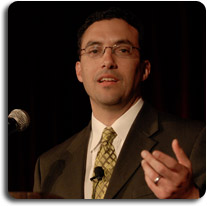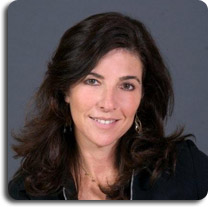 Jonah Edelman is the Chief Executive Officer of Stand for Children. His job is to work with the experts to identify the best opportunities to create better lives for children, and then guide organizations and volunteers in taking advantage of those opportunities. Stand for Children was chosen as a TILE charity because we believe in the quality of their work and their commitment to a better future. Jonah was kind enough to give us an insider perspective from within a major organization working to fight inequality and improve the education system across the country.
Jonah Edelman is the Chief Executive Officer of Stand for Children. His job is to work with the experts to identify the best opportunities to create better lives for children, and then guide organizations and volunteers in taking advantage of those opportunities. Stand for Children was chosen as a TILE charity because we believe in the quality of their work and their commitment to a better future. Jonah was kind enough to give us an insider perspective from within a major organization working to fight inequality and improve the education system across the country.
TILE: What’s the most pressing issue facing our education system today?
Jonah: The toughest issue facing us is the incredibly low percentage of kids graduating from high school who are ready to go on to college. This is a critical piece to the cycle of education, careers, and earning potential. Today, all the kids who aren’t ready for college and who don’t even graduate from high school face a steep uphill battle to succeed in life.
TILE: How did this happen?
Jonah: There are a combination of factors that have led us to this point: teachers who aren’t effective in the classroom, lack of funding for schools, no common standards for student achievement and teacher evaluations, and more. Every state in the country faces a different set of challenges. Unfortunately, when we stay satisfied with the status quo, we let down our children who deserve much more.
TILE: What is Stand’s primary strategy for addressing this issue?
Jonah: At Stand, we teach parents, teachers, and other concerned people how to support their kids and their local schools. We provide them with tools and show them how to lead their communities to a better place. We also work from the top down by helping pass new laws at the state level that will support the efforts of schools and districts to do more for all kids. The solution will come fastest when everyone is on the same page, working to help kids succeed.
TILE: How do you think young people (in public or private schools) can be most effective in being a part of the solution?
Jonah: Part of what Stand does is show adults how to give voice to children, who can’t vote to effect change to the educational system until they’re 18. Children can be a part of the solution by talking with their parents, grandparents, teachers, and school administrators, telling them about what is working, what doesn’t work, and what they need to succeed. Kids can write letters to the editor or their state representative to share their opinions!
TILE: What’s the best advice you would give to your teenage self?
Jonah: I’d tell my teenage self to focus more on learning for learning’s sake and not just to do well in school – to learn what I’m interested in and passionate about and not just what’s assigned!
>> TILE brings you exclusive opinions, explanations, and interviews from experts in every industry. To read more, click on Ask the Experts in the TILE Library.
Have a burning question or an expert you’d like to see interviewed? Just Ask TILE!
 Wendy Nadel is the Executive Director of Yonkers Partners in Education, a non-profit dedicated to supporting access to and success in education for all Yonkers students and their families. She’s not new at working for the greater good; 25 years ago Wendy founded Volunteer Emory while she was a student at Emory University. She’s worked for the March of Dimes, run her own non-profit consulting firm, performed research on child poverty for Save the Children, and currently serves as a member of the Emory University Alumni Board and the Volunteer Center of the United Way. Sounds like she knows a thing or two about following your heart…
Wendy Nadel is the Executive Director of Yonkers Partners in Education, a non-profit dedicated to supporting access to and success in education for all Yonkers students and their families. She’s not new at working for the greater good; 25 years ago Wendy founded Volunteer Emory while she was a student at Emory University. She’s worked for the March of Dimes, run her own non-profit consulting firm, performed research on child poverty for Save the Children, and currently serves as a member of the Emory University Alumni Board and the Volunteer Center of the United Way. Sounds like she knows a thing or two about following your heart… Jonah Edelman is the Chief Executive Officer of
Jonah Edelman is the Chief Executive Officer of